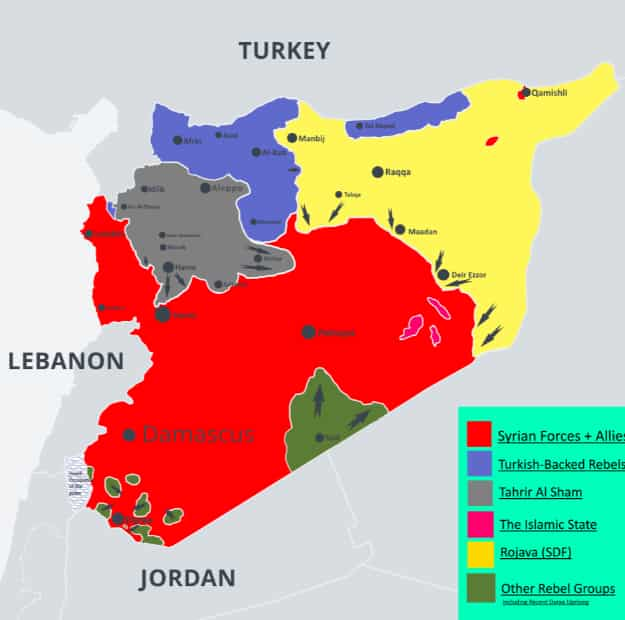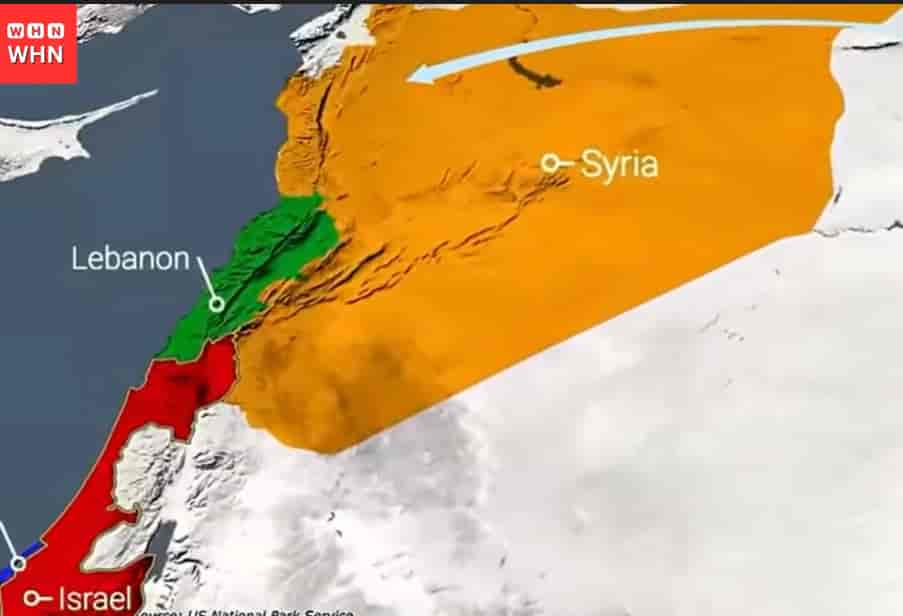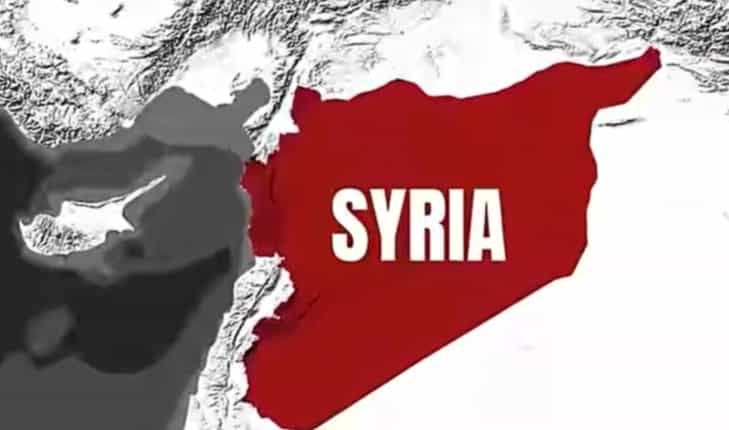Contents
Following the American elections, rapid changes are taking place in world politics. While the Russian-Ukraine war is coming to an end, on the other hand, on Sunday, December 8, 2024, international news agencies received breaking news that “the Assad regime fell.” Question marks also emerged with this news. We will try to analyse issues such as how Putin could have allowed this or why the Russians did not support the Syrian government. If we leave everything aside, the reality at this point today is that the Syrian Assad regime that has been going on for 54 years has come to an end.

The former leader, who left the country with his family, has also left many question marks behind. This civil war that lasted for about 14 years and the resistance of the current administration suddenly flared up again with the opposition attacks that suddenly started again in November. Just like the Taliban in Afghanistan, which rapidly advanced to the centre and took over the administration, the opposition entered Aleppo and then Damascus without encountering any harsh resistance and overthrew the regime in less than ten days.
With all these developments, let us remember that among the election promises of Donald Trump, who will take office in the US in January 2025, is to end the wars in the Middle East. If we add to this that he also gets along well with Putin, things become a little clearer. In other words, the possibility of these two leaders agreeing on a change of government in Syria in return for regions such as Crimea and Donbass being left to Russia will come to mind.

Historical Background of the Assad Regime Fell
Don’t let this subheading scare you. We’re not going to give you a long history lesson. Let’s just go back to 2010 and remember the concept of the Arab Spring, which first spread to Tunisia in December and then gradually spread to countries such as Egypt, Algeria and Yemen. This definition, which was popular at the time, meant that the peoples of the Middle East expressed their demands for more freedom and democracy through peaceful demonstrations.
Leaders who had been at the helm of their countries for decades, such as Hosni Mubarak, were forced to leave their posts. However, it should also be noted that such events did not happen as easily and quickly as we have written. In other words, the governments of the countries that witnessed the Arab Spring initially intervened very harshly against the opposition and thousands of people died. At the end of the ongoing protests, sometimes with pressure and sometimes, as in the case of Yemen, with international bombings and interventions, the so-called dictators fell.

Here is the 61-year-old Baath regime in Syria and Assad was the only leader who managed to remain in office despite this pressure and intervention in the last 15 years. Despite losing significant territory from his country during this process, he managed to hold the capital Damascus and its surroundings tightly. It is precisely at this point that the influence of Putin and Russia should be mentioned. The Russians achieved their goal of reaching the warm seas, which they had targeted for centuries, thanks to Syria and established their only base in the Mediterranean in the city of Latakia.
Syrian Regime Historical Mistakes
The Russian administration, which hosts more than 2,000 soldiers in this base, supported Bashar Assad and ensured that he was the only leader who resisted in this region until today. In addition, Iran and Hezbollah, the most influential powers in the region, also supported him. Although the civil war in the country turned into a cold war with Biden’s coming to power in 2020, occasional clashes continued.
To summarize this issue briefly, the factors that have enabled Bashar to remain in office until today can be listed as follows:
- Russia and Putin’s support and the Russian base in the port of Latakia.
- Iran’s support for the Syrian leader, with whom it shares the same sect.
- Hezbollah’s presence in the region and its unconditional loyalty to the regime.

Assad Regime Fell: Key Events Leading to Collapse
Along with international news agencies, newspapers and televisions have already begun to publish analyses on why Damascus fell. However, there are currently claims that Assad’s plane crashed. Although it is too early to make an analysis on this issue, the Assad regime fell, this is a fact. So why did Russia, Iran, and to some extent China and Hezbollah, who have kept this regime standing until now, withdraw their support today and did not intervene in the fall of Damascus in almost a month?
When analysing global political relations and transnational events, it is necessary to look at the event from multiple perspectives. It is no coincidence that the groups in Syria named HTS, YPG and Syrian National Army have become stronger over time and launched attacks against the regime from different regions at the same time. The success of these opposition elements, which are supported separately by countries such as Israel, America and Turkey, is actually a reflection of the cold struggle we call proxy war.
It is very interesting that the regime changed in 11 days when there is the US-Israel on one side of this proxy war and Russia, Iran and China on the other. After the news that Assad regime fell, Russia’s statements that “He is leaving his country by plane and the change must be bloodless” show that it has accepted. However, Putin’s advisors have also announced that they will not take part in the new government efforts. In addition, Lebanon and Hezbollah have also announced that they are withdrawing from the country.
If the rumours that Assad’s plane crashed turn out to be true, it is also possible to accept that he is dead. The imperialist powers will not care about the fact that this politically lifeless former leader is actually alive.
The Future of Syria Post-Regime
At this point, if we were to analyse and list why the Assad regime fell today after 14 years:
- Trump and Putin may have reached an agreement on Ukraine. In addition, since Russia’s military presence and power have weakened recently, it is likely that it will no longer want to fight alongside the Damascus government. In this context, Putin may have withdrawn his support from Assad in exchange for the Russian military base remaining in Latakia, Crimea and Donbas being left to the Russians and the war being ended.
- Hezbollah’s ceasefire with Israel in Lebanon is also important in terms of timing. In other words, if the ceasefire conditions include ending support for the Syrian government, it is natural that they would not support the Baath regime today as it is falling.
- It is also important that communities such as HTS, which are of different sects and origins and are defined as terrorist organizations by some, treat the local people and public officials well in the places they have captured on the Manbij-Deir ez-Zor line. The local people’s lack of resistance has also helped the opposition advance in a short time.
Finally, to summarize the issue, yes, the Assad regime fell, but at this stage, what is important is to analyse this issue well. The reason for Russia and Putin to withdraw from this administration, which they supported for 14 years, will become clear in the coming period. It is significant that Iran and China are also silent here.
From now on, the massacres and suffering experienced in Iraq should not be experienced here either. At this point, all international actors should come together and establish the transition process and democracy in a way that will benefit the Syrian people.
